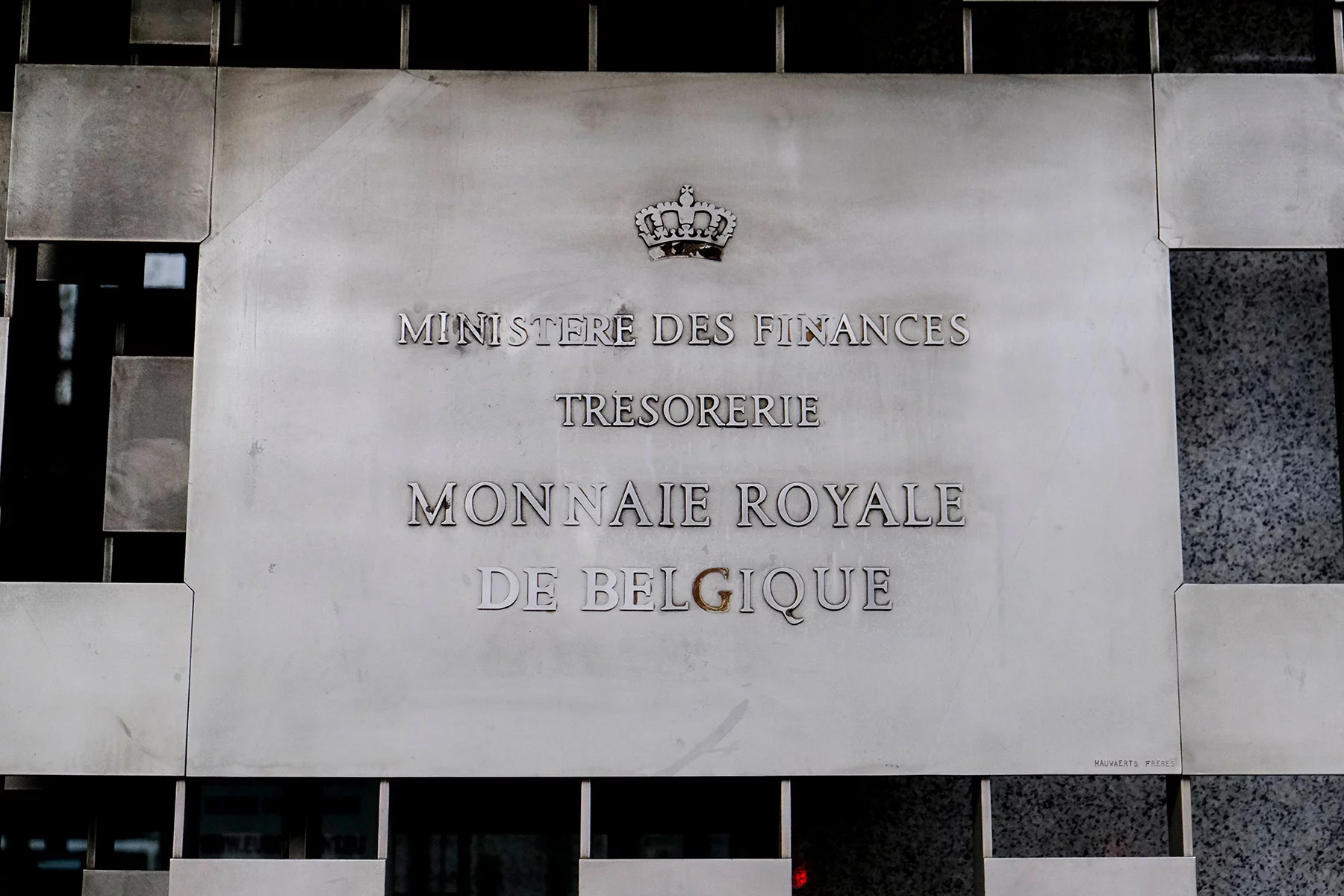Whether you’ll pay corporate tax or income tax in Belgium depends on the type of business you’re running. Read on for advice on the following topics:
- Self-employed tax system in Belgium
- Freelance income tax in Belgium
- Registering for freelance tax in Belgium
- Freelance tax deductions and credits in Belgium
- Corporate tax rates in Belgium
- How to file freelance tax in Belgium
- VAT in Belgium for self-employed people
- Social security for self-employed workers in Belgium
- Combining freelance work and paid employment in Belgium
- Self-employed tax fines in Belgium
- How to find an accountant or financial adviser in Belgium
- Useful resources
MeDirect
Get more from your money with MeDirect. This Belgian savings and investment bank is home to financial experts who can help you expand your investment portfolio and track your stocks and shares. Enjoy in-app accessibility and let your money work for you with MeDirect.
Self-employed tax system in Belgium
If you work as a freelancer in Belgium or have a stake in a partnership, you’ll need to file a Belgian tax return and pay income tax (impôt des personnes physiques in French, personenbelasting in Dutch). However, if you’re the owner of a larger company, you’ll instead need to pay corporate tax instead.
In addition to income tax, self-employed workers need to make social security contributions.
Around 15% of workers in Belgium are self-employed, and just under a quarter (23.5%) of self-employed people in Belgium are of foreign origin, according to a 2023 survey by the Belgian Observatory of Small and Medium-sized Enterprises.
Freelance income tax in Belgium
If you live in Belgium for more than six months (183 days) of the year and are registered with your local municipality, you are a Belgian resident. This means you must pay Belgian tax on your worldwide income.

Taxable income is the income left after deductions for social security contributions and any relevant professional expenses. If you are married, and your spouse’s income is less than 30% of your joint income, then you can also deduct a dependent spouse allowance.
Workers living in Belgium for less than six months (183 days) who don’t have a Belgian ID card are non-residents. As a result, you only pay tax on income from within Belgium.
Income tax rates for sole traders and partnerships
If you are a sole trader or in a partnership, then your profits are subject to personal income tax.
You can find the income tax brackets for 2023 and 2024 earnings in our article on income tax in Belgium.
All workers, including freelancers also benefit from a tax-free allowance which increases if you have children.
Registering for freelance tax in Belgium
You will receive an income tax return once a year. Income tax is payable one year after the end of the Belgian tax year.
Self-employed workers can choose to pay advance estimated quarterly payments for the year in progress. You won’t need to make advance payments for the first three years of setting up your business.
Freelance tax deductions and credits in Belgium
Self-employed people can deduct their social security contributions and business expenses when filing a tax return. You can deduct expenses on an actual or lump-sum basis.
Actual expenses
Expenses you offset on your tax bill must relate to a professional activity. You must declare expenses at their actual cost. Most expenses are deductible at their full cost, but expenses relating to cars (75%), restaurant bills (69%), and representation costs (50%) are only partly-deductible.
If you want to claim your expenses on an actual cost basis, you’ll need to keep track of all of your expenses in case you’re required to provide evidence when you file your return.
Lump-sum deductions
Alternatively, you can deduct your expenses as a lump sum. Self-employed workers are allowed to offset a fixed amount against their tax return, which is automatically allowed without the need to provide evidence.

It only makes sense to choose the lump sum deduction if your actual expenses are less than the lump sum or you can’t evidence your expenses fully.
Depreciation
Some other expenses can’t be deducted in full in a tax year, and instead must be depreciated over more than one year. The rules around this are complex, so take advice on your situation from an accountant.
For example, if you use your own car for business purposes, it can be depreciated over five years. This means that one-fifth of the purchase price of the car is deducted from your tax bill every year.
Corporate tax rates in Belgium
If you need to pay corporate tax instead of income tax, the rates are different.
The corporate tax rate in 2024 is 25%.
Companies making less than €100,000 in a year can pay corporate tax at a lower rate of 20%.
How to file freelance tax in Belgium
Income tax
The Belgian tax year runs from 1 January to 31 December. You will typically receive a tax return around May or June (déclaration/aangifte) relating to the previous year’s income. This must normally be returned by the end of June, although you will find the exact date on your tax return.
You can file your tax return by post to your local tax office (the address is on the top of your tax return) or online using an eID through the Belgian government’s tax portal, MyMinfin.
You can generally take some extra time if you use the online filing system. Non-residents file their return at the end of September or the beginning of October.
Corporate tax
The filing deadline for 2023 corporate tax returns is seven months after the end of the company’s financial year. Assuming the company’s financial year ended on 31 December 2023, the deadline will be 31 July 2024. Companies generally make their Belgian corporate tax payments in four instalments:
- First quarter: by 10 April
- Second quarter: by 10 July
- Third quarter: by 10 October
- Fourth quarter: by 20 December
In the event of a late return, the government can calculate the company’s tax bill automatically. Late payers are also subject to a surcharge, which depends on the company’s previous filing record and whether the authorities believe it intended to avoid paying tax.
VAT in Belgium for self-employed people
VAT in Belgium is called Taxe sur la Valeur Ajoutée (TVA) in French or Belasting over de Toegevoegde Waarde (BTW) in Dutch.
If your business is offering goods or services then you may be liable to pay and charge your clients VAT.

If your small business’ turnover is under €25,000, you can opt for petite entreprise/kleine onderneming status. This makes you exempt from VAT but also from claiming it back.
VAT is 21% for most items. Businesses pay VAT monthly or quarterly. Some items qualify for lower rates of 12% and 6%, while a handful of items are VAT-free.
VAT can be reclaimed on your professional expenses.
Social security for self-employed workers in Belgium
Self-employed and freelancers generally pay a higher percentage of their income to social security than employees. However, the exact amount depends on your age, how long you have been self-employed, and how much you earn.
Contributions are based on your income from three years previously. During your first three years of working as a freelancer, you are charged a minimum provisional amount. At the end of the three years, your contributions will be adjusted.
You’ll receive a bill at the beginning of each quarter (January, April, July, and October) and pay it before the end of the quarter.
You can avoid large bills by estimating your future income and making payments in advance.
Combining freelance work and paid employment in Belgium
If your freelance work is in addition to paid employment, you can apply for the status of indépendant complémentaire (in French) or zelfstandige in bijberoep (in Dutch).
This means that you can pay social contributions as you earn, but with no minimum. Income tax is calculated by adding freelance income to your salary.
Self-employed tax fines in Belgium
If you don’t submit your return by the deadline, you can face a fine. In addition to this, the tax authorities may estimate how much tax you need to pay.
If you fail to submit your income tax return on time, fines range from €50 to €1,250, plus a tax surcharge of between 10% and 200%. How much you’ll pay depends on how late the return is and whether you’re actively avoiding tax.
If your company fails to submit or pay its corporate tax on time, fines of up to 200% and legal sanctions are possible.
How to find an accountant or financial adviser in Belgium
You can find an accountant (expert-comptable or compte fiscal in French, accountant or belastingconsulent in Dutch) through the website of the Instituut van de Accountants en de Belastingconsulenten.
Useful resources
- Federal Public Service Economy SMEs, Self-Employed, and Energy: information on self-employment in Belgium, some of which is in English
- Information on Belgian social security: mainly in French and Dutch, but has an English language contact e-mail service
- RSVZ: social security authority for self-employment in Belgium
- VAT section of the FPS Finance website: more information on VAT (in French, Dutch, and German)








